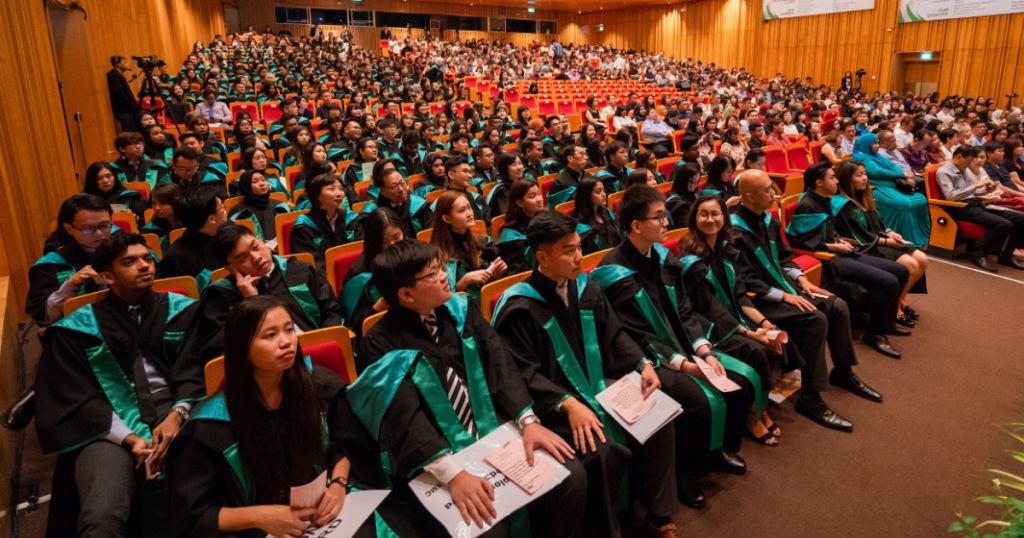During the National Day Rally (NDR) 2019, Prime Minister Lee Hsien Loong announced the Government’s plans to increase bursaries and lower tuition fees for tertiary education.
Singapore Institute of Technology (SIT) and Singapore University of Social Sciences’ (SUSS) annual tuition fees for full-time general degree courses currently cost $8,000, and will be lowered to $7,500.
Students from lower-income families currently receive bursaries of up to 50% of university fees for general degree courses, which will now be raised to up to 75%.
The current bursary lets students pay $4,000 per year where full fees for general degree courses cost about $8,000 annually.
With the updated bursary rates, students only need to pay about $2,000 per year.
Full fees for medical and dentistry undergraduates at the National University of Singapore (NUS) cost $28,900 and the Nanyang Technological University (NTU) cost $34,700.
The new government bursaries will enable students from families in the bottom 20% income group to pay only $5,000 a year.
21,000 undergraduates, including medical students, are expected to benefit from these measures.
Polytechnic students from the lowest 20% of household income groups will pay $150 of their $2,900 annual fees when the increased bursaries take efffect, according to this.
This is $400 less than what they now pay annually.
Overall, 33,000 polytechnic students are expected to benefit from this move.
These measures will begin in the next academic year.
The total spending on bursaries for undergraduates and diploma students will increase by $44 million, from $123 million to $167 million.
Pursuing Education Should Not Be Hindered By Money
The move comes after the rising percentage of polytechnic students from households in the bottom 30% income group.
Education Minister Mr Ong shared that 15 years ago, about 38% of polytechnic students were estimated to come from families in that income group.
Now, there are 52% of polytechnic students from lower-income families.
As for university students, the percentage of undergrads from lower-income families rose from 13% to 21% in the same period.
In his NDR speech, PM Lee said money should not stop students from pursuing their education.
Mr Ong said in a speech on the new bursaries, “We want to make sure that… we do not deter students from lower-income backgrounds from studying medicine and dentistry.”
Currently, there are 30% of Institute of Technical Education (ITE) graduates who do not progress beyond Nitec qualification, he added.
The Ministry of Education (MOE) will provide more places in programmes like ITE’s SkillsFuture Work-Study diplomas and full-time Higher Nitec courses to support them.
More places will also be provided in the polytechnics for applicants with work experience as well.
He revealed that the plan is to have all Nitec graduates from ITE to have a chance to attain a higher qualification by 2030.
Universities have an important role to play in social integration and in enabling social mobility, Mr Ong was reported to have said.
He also noted that education is an “upgrading force”, with each generation doing better than the one before.
Mr Ong emphasised that education is “fundamental to our social mobility”.
Bursaries had to be raised to help lower-income groups gain from education, he added.
“Cost cannot be an impediment for families with hard work and talent and aptitude to upgrade their lives and get a better future for themselves,” said Mr Ong.
Featured Image Credit: Republic Polytechnic











